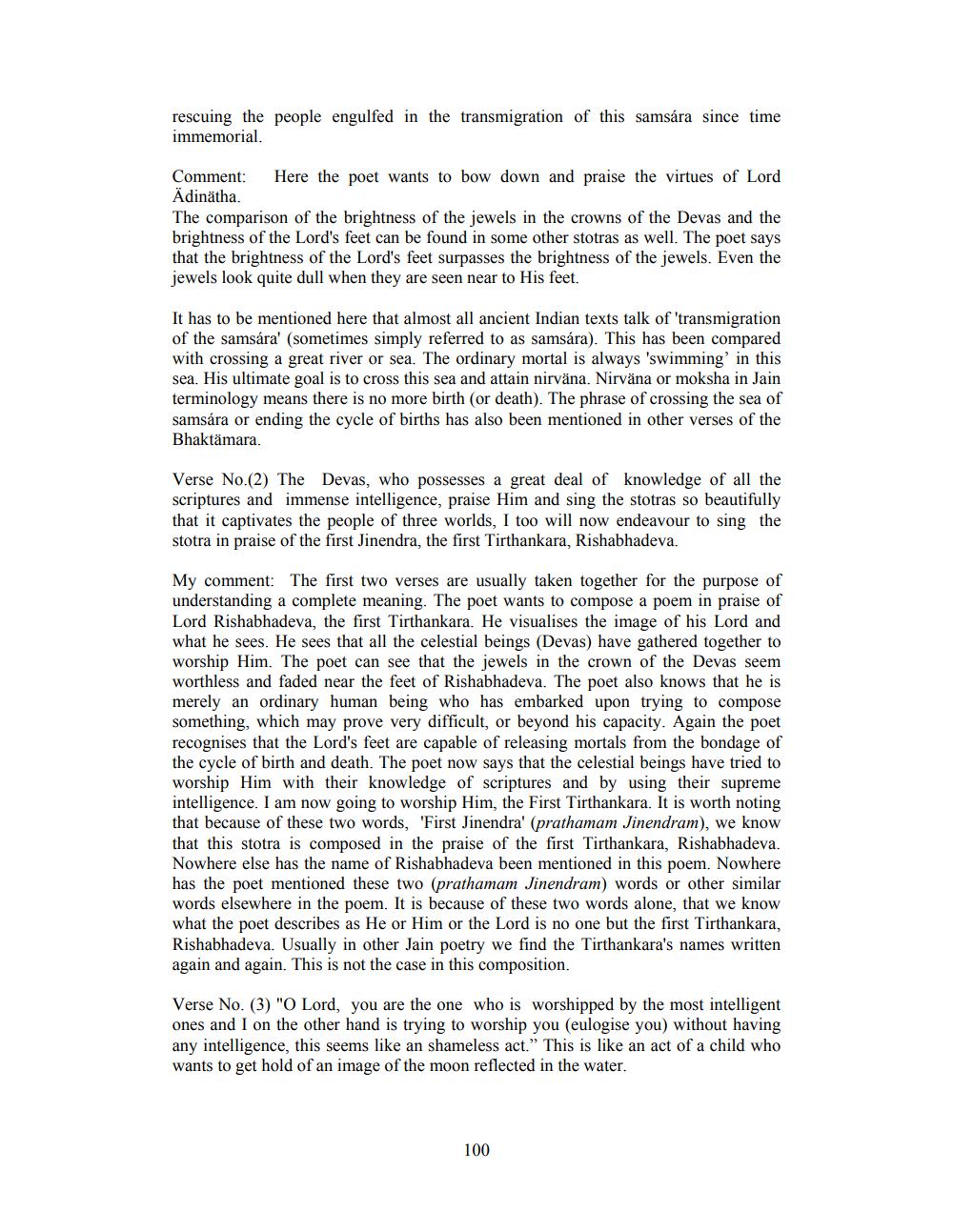________________
rescuing the people engulfed in the transmigration of this samsára since time immemorial
Comment: Here the poet wants to bow down and praise the virtues of Lord Ädinätha. The comparison of the brightness of the jewels in the crowns of the Devas and the brightness of the Lord's feet can be found in some other stotras as well. The poet says that the brightness of the Lord's feet surpasses the brightness of the jewels. Even the jewels look quite dull when they are seen near to His feet.
It has to be mentioned here that almost all ancient Indian texts talk of 'transmigration of the samsára' (sometimes simply referred to as samsára). This has been compared with crossing a great river or sea. The ordinary mortal is always 'swimming' in this sea. His ultimate goal is to cross this sea and attain nirväna. Nirvana or moksha in Jain terminology means there is no more birth (or death). The phrase of crossing the sea of samsára or ending the cycle of births has also been mentioned in other verses of the Bhaktämara.
Verse No.(2) The Devas, who possesses a great deal of knowledge of all the scriptures and immense intelligence, praise Him and sing the stotras so beautifully that it captivates the people of three worlds, I too will now endeavour to sing the stotra in praise of the first Jinendra, the first Tirthankara, Rishabhadeva.
My comment: The first two verses are usually taken together for the purpose of understanding a complete meaning. The poet wants to compose a poem in praise of Lord Rishabhadeva, the first Tirthankara. He visualises the image of his Lord and what he sees. He sees that all the celestial beings (Devas) have gathered together to worship Him. The poet can see that the jewels in the crown of the Devas seem worthless and faded near the feet of Rishabhadeva. The poet also knows that he is merely an ordinary human being who has embarked upon trying to compose something, which may prove very difficult, or beyond his capacity. Again the poet recognises that the Lord's feet are capable of releasing mortals from the bondage of the cycle of birth and death. The poet now says that the celestial beings have tried to worship Him with their knowledge of scriptures and by using their supreme intelligence. I am now going to worship Him, the First Tirthankara. It is worth noting that because of these two words, 'First Jinendra' (prathamam Jinendram), we know that this stotra is composed in the praise of the first Tirthankara, Rishabhadeva. Nowhere else has the name of Rishabhadeva been mentioned in this poem. Nowhere has the poet mentioned these two (prathamam Jinendram) words or other similar words elsewhere in the poem. It is because of these two words alone, that we know what the poet describes as He or Him or the Lord is no one but the first Tirthankara, Rishabhadeva. Usually in other Jain poetry we find the Tirthankara's names written again and again. This is not the case in this composition.
Verse No.(3) "O Lord, you are the one who is worshipped by the most intelligent ones and I on the other hand is trying to worship you (eulogise you) without having any intelligence, this seems like an shameless act." This is like an act of a child who wants to get hold of an image of the moon reflected in the water.
100




